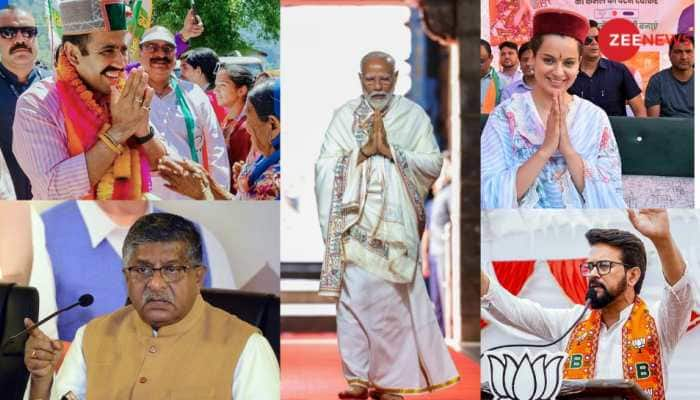Zaheer Khan: Why India's 2011 World Cup's unsung hero is a rare legend
Trending Photos
)
Let me begin with a question? As an Indian fan, what are your fond memories from the ICC World Cup 2011? Yes, MS Dhoni's winning six will go down as one of the most sensational shots in the game ever. Sachin Tendulkar's two valuable centuries against England and South Africa were also special.
Gautam Gambhir too, played a gem of an innings in the final, where had he scored three more runs, a century in a World Cup final, would for some reasons, sound much more formidable that the left-hander's 97-run knock. What else? Oh, how could we forget Yuvraj Singh's brilliant all-round show throughout the series where he delivered match-winning performances and was rightly adjudged the Man of the Series. But are we missing something?
Between all these wonderful centuries, stupendous knocks and helicopter sixes, what we often tend to forget, is the performance of Zaheer Khan. The speedster was the joint highest wicket-taker in cricket's biggest extravaganza, with 21 wickets along with Shahid Afridi. Compared to Afridi, Zaheer's contribution is more significant as it came on Indian conditions, which are a nightmare for a pacer. Had it not been for Zaheer's consistent performances, India would have possibly not won their second World Cup.
When he made his ODI debut against Kenya in Nairobi, Zaheer made an immediate impact as he scalped three wickets in his first international match. There was a lot of talk as to how there was this young left-arm pacer who was making life miserable for world-class batsmen with his perfect yorkers. While the toe-crushing delivery wasn't as lethal as it used to be in latter half of Zaheer's career, it was something Indian fans looked forward to whenever he came to bowl as a youngster.
When Javagal Srinath retired post the annihilation at the hands of Australia in 2003 World Cup final, even though Zaheer wasn't established as a world-class pacer, he was someone who was expected to be India's premier bowler in the years to come. And even though India had several more pacers who bowled alongside Zaheer, none of them could be as effective as him, because they lacked the accuracy in all formats of the game.
As leader of the pack, Zaheer also shared his knowledge with bowlers like Sreesanth, RP Singh, Irfan Pathan and Pravin Kumar all of who played for India, not as regularly as Zaheer though.
Zaheer deserved to play a lot more than 92 Tests and 200 ODIs, but a series of injuries cut short his career. Like a true warrior, he fought against the odds and made several comebacks, the last being when India toured South Africa in December 2013, where MS Dhoni recalled him since the squad lacked experience. Zaheer didn't disappoint the skipper and picked 12 wickets in four innings, ahead of Mohammed Shami (6) and Ishant Sharma (5).
Zaheer is infamously remembered for that first over of the ICC 2003 World Cup final. He leaked 15 runs in the 10-ball over, something which many believe shifted the momentum in Australia's favour. But after that heartbreaking loss, eight years later, Zak bowled his heart out as India became the only country to lift the World Cup as hosts.
In the tributes that poured in for him on Twitter, Dhoni called him the 'cleverest fast bowler', while Sachin Tendulkar hailed him as a seamer who could out-think the batsmen on most of the occasions. When two of cricket's most intelligent cricketers rate someone so highly, we know Indian cricket needs someone like Zaheer to share his skills and experience to nurture India's young pacers.
In a country where a good batsman is at a stone's throw away, Zaheer's contribution to Indian cricket has been monumental. We have a rich legacy when it comes to spinners, but if we recall names of Indian pacers who made a name for themselves on the world stage, Zaheer would be there right on top.
As a token of thanks, Indian fans would like to tell him exactly what his mother said after she heard about his decision to retire – Bahut achha safar tha hamaara.
Live Tv







)
)
)
)
)
)
)
)
)
)
